Supreme Court Upholds BSIV Deadline

- Registration or sale of BS III vehicles will not be allowed after 1 April
- The court said public health conerns overrule all other considerations
- Many manufacturers had petitioned the court to grant an extension
The Environment Pollution Prevention and Control Authority (EPCA) had earlier asked the industry to hasten the process of transitioning to the new emissions cycle, at a meeting it held with the SIAM in October 2016. Speaking after the announcement of the verdict, Sunita Narain, of the CSE told NDTV, "The Supreme Court has given the right message, and has accepted that public health is paramount. Enough time was given to vehicle manufacturers. It is a tough decision and the court and the industry had been presented with a fait accompli."
The issue goes back to a March 2014 notification by the Indian government stating that "Provided that the two-wheelers manufactured on and after the 1st April 2016 for new types of vehicle models and from the 1st April, 2017 for existing types of vehicle models shall be type approved as per requirements of sub-rule (16)". Bajaj had moved court earlier this month asking it to step in and impose the deadline. Some players like Bajaj say they have already incurred losses on account of the switch over and any extension would give their rivals an unfair advantage to carry on selling lower cost vehicles. Bajaj Auto has said it welcomes today's ruling and is happy the Supreme Court has held the industry to the deadline, saying it was 'surprised yet pleased' with today's ruling. S Ravikumar, President, Business Development, Bajaj Auto, said, "The Supreme Court has stood for the spirit of the law and it has given a sort of landmark judgement. It will really align the industry much more to improve everything possible."
Manufacturers like Maruti Suzuki, Hyundai Motor had already moved to BS IV car models a while ago. Commenting on this Hyundai India said, "We respect the honourable Supreme Court's decision and confirm that all our products comply with BSIV norms." Toyota Kirloskar's Vikram Kirloskar told NDTV that all Toyota brand cars have been selling as BS IV only for several months now.
The auto industry has reacted and early indications are that the affected players will look at retrofitting the existing inventory to upgrade the vehicles to BS IV compatibility, or seek export markets where BS III stage norms still apply. They had asked the court for a 7 or 8 month period beyond April 1 2017. Guenter Butschek, MD Tata Motors has said, "Tata Motors will need to take stock of the number of vehicles affected. We will need to find solutions to minimize the damage. So we will even have to look at demand in export markets where BS III compatible vehicles can be sold"
The imposition of the April 1 deadline will also set the precedent for the next leap India needs to make to BS VI emission norms by 2020. That is now the next big step for which manufacturers and their suppliers need to gear up. India had fast tracked the move to BS VI norms (in line with Euro VI cycle) to 2020, ahead of the 2024 deadline - also at the behest of the Supreme Court.
Latest News
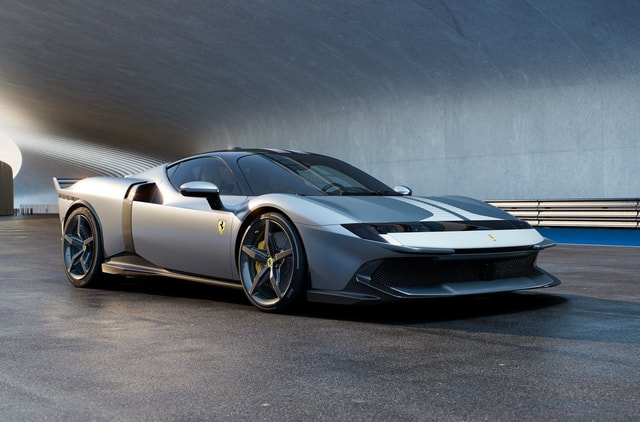 car&bike Team | Feb 16, 2026Ferrari 849 Testarossa India Launch On March 14The Ferrari 849 Testarossa is a replacement of the SF90 Stradale, and this prancing horse will be launched in India on March 12, 2026.2 mins read
car&bike Team | Feb 16, 2026Ferrari 849 Testarossa India Launch On March 14The Ferrari 849 Testarossa is a replacement of the SF90 Stradale, and this prancing horse will be launched in India on March 12, 2026.2 mins read Jaiveer Mehra | Feb 16, 2026Nissan Gravite India Debut Tomorrow: What To ExpectThe Gravite is Nissan’s entry into the subcompact MPV segment and shares its underpinnings with the Renault Triber.1 min read
Jaiveer Mehra | Feb 16, 2026Nissan Gravite India Debut Tomorrow: What To ExpectThe Gravite is Nissan’s entry into the subcompact MPV segment and shares its underpinnings with the Renault Triber.1 min read Jaiveer Mehra | Feb 16, 2026Mobileye To Deploy Hands-Off ADAS Tech In India In 2027The company is also eyeing localising its ADAS systems in India as it expects demand to rise with changes in regulations.1 min read
Jaiveer Mehra | Feb 16, 2026Mobileye To Deploy Hands-Off ADAS Tech In India In 2027The company is also eyeing localising its ADAS systems in India as it expects demand to rise with changes in regulations.1 min read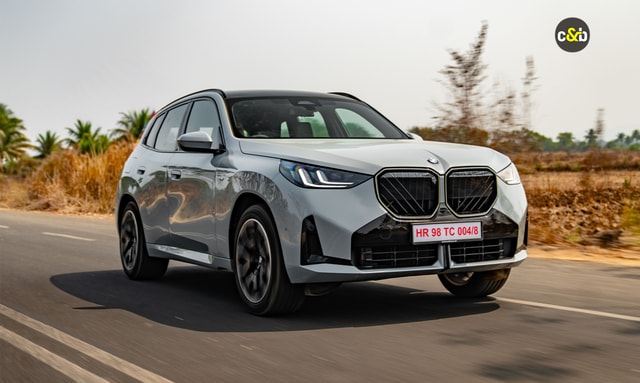 Bilal Firfiray | Feb 16, 2026BMW X3 xDrive30 M Sport Pro Lanched In India At Rs 74.50 LakhThe new range-topping xDrive 30 done up in the M Sport Pro trim offers 255bhp and 400Nm. Can do 0-100kmph in just 6.3 seconds1 min read
Bilal Firfiray | Feb 16, 2026BMW X3 xDrive30 M Sport Pro Lanched In India At Rs 74.50 LakhThe new range-topping xDrive 30 done up in the M Sport Pro trim offers 255bhp and 400Nm. Can do 0-100kmph in just 6.3 seconds1 min read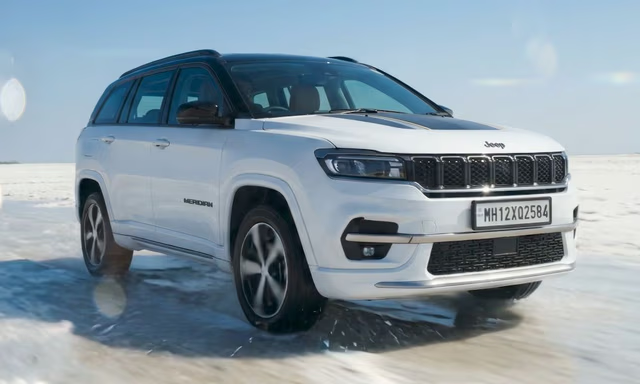 Jaiveer Mehra | Feb 16, 2026Jeep Meridian Track Edition Launched In India; Prices Start At Rs 35.95 LakhSpecial edition of the Meridian is based on the fully-loaded Meridian Overland.1 min read
Jaiveer Mehra | Feb 16, 2026Jeep Meridian Track Edition Launched In India; Prices Start At Rs 35.95 LakhSpecial edition of the Meridian is based on the fully-loaded Meridian Overland.1 min read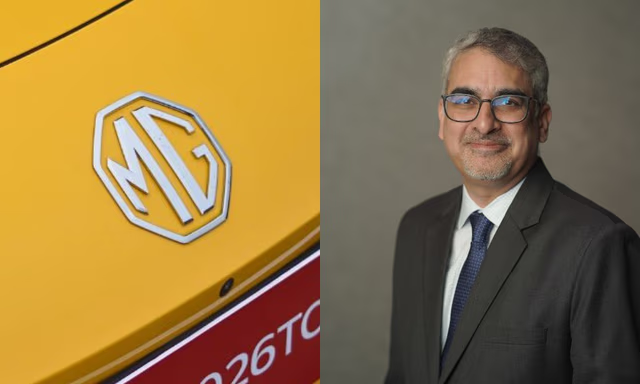 Girish Karkera | Feb 16, 2026MG's First Plug-In Hybrid For India Coming In 2026, Confirms MD Anurag MehrotraJSW MG is pivoting toward a hybrid and electric future, targeting a 30% market share for New Energy Vehicles (NEVs) by the end of the decade1 min read
Girish Karkera | Feb 16, 2026MG's First Plug-In Hybrid For India Coming In 2026, Confirms MD Anurag MehrotraJSW MG is pivoting toward a hybrid and electric future, targeting a 30% market share for New Energy Vehicles (NEVs) by the end of the decade1 min read
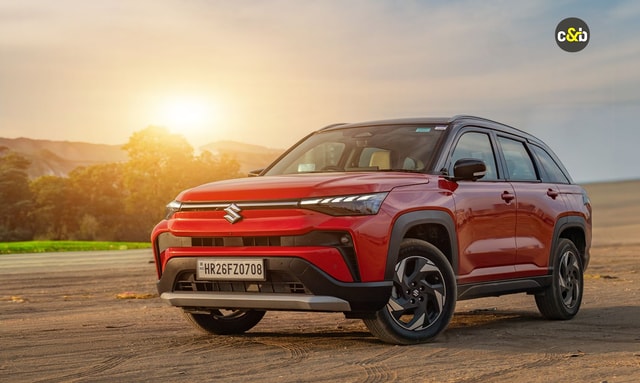 Jafar Rizvi | Feb 15, 2026Maruti Suzuki Victoris: Long-Term Review - Report 1The Victoris is Maruti’s latest offering for the Indian market, and after spending some time with it, here are a few early impressions.1 min read
Jafar Rizvi | Feb 15, 2026Maruti Suzuki Victoris: Long-Term Review - Report 1The Victoris is Maruti’s latest offering for the Indian market, and after spending some time with it, here are a few early impressions.1 min read Bilal Firfiray | Feb 12, 2026BMW X3 30 xDrive M Sport Review: The Driver’s SUV ReturnsRange-toppingX3 30 xDrive M Sport brings back the fun with 255bhp and genuine enthusiast appeal. Does this performance-focused SUV stand out?5 mins read
Bilal Firfiray | Feb 12, 2026BMW X3 30 xDrive M Sport Review: The Driver’s SUV ReturnsRange-toppingX3 30 xDrive M Sport brings back the fun with 255bhp and genuine enthusiast appeal. Does this performance-focused SUV stand out?5 mins read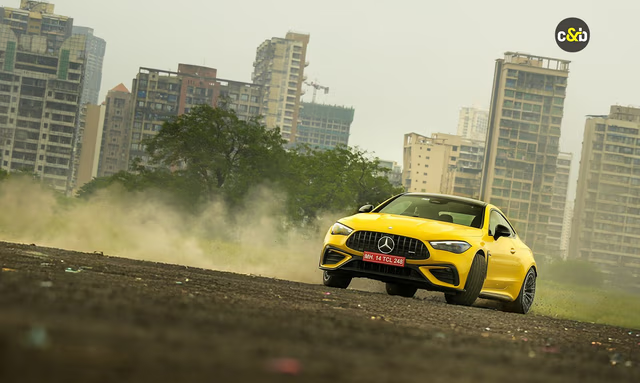 Bilal Firfiray | Feb 11, 2026Mercedes-AMG CLE 53 Coupe Review: The Goldilocks AMG?The Mercedes-AMG CLE 53 Coupe is a concoction of hooliganistic performance and everyday usability. Here’s why this Rs 1.5 crore two-door AMG might be the perfect modern sports coupe for India.6 mins read
Bilal Firfiray | Feb 11, 2026Mercedes-AMG CLE 53 Coupe Review: The Goldilocks AMG?The Mercedes-AMG CLE 53 Coupe is a concoction of hooliganistic performance and everyday usability. Here’s why this Rs 1.5 crore two-door AMG might be the perfect modern sports coupe for India.6 mins read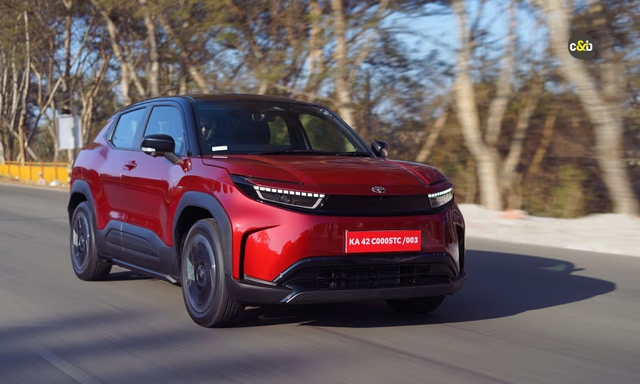 Girish Karkera | Feb 11, 2026Toyota Ebella EV Review: Compact And Fun-To-Drive With The Promise Of Stress-Free AftersalesNo hiding the fact that it is a clone of the Maruti Suzuki eVitara, but the first all-electric Toyota in India is reasonably well-rounded8 mins read
Girish Karkera | Feb 11, 2026Toyota Ebella EV Review: Compact And Fun-To-Drive With The Promise Of Stress-Free AftersalesNo hiding the fact that it is a clone of the Maruti Suzuki eVitara, but the first all-electric Toyota in India is reasonably well-rounded8 mins read Bilal Firfiray | Feb 10, 2026Tata Punch EV Long Term Review: Small EV With A Big-Hearted PersonalityWith the new Punch EV Facelift just around the corner, we decided to take a look at what it excels at and what could be improved.7 mins read
Bilal Firfiray | Feb 10, 2026Tata Punch EV Long Term Review: Small EV With A Big-Hearted PersonalityWith the new Punch EV Facelift just around the corner, we decided to take a look at what it excels at and what could be improved.7 mins read



























































































































